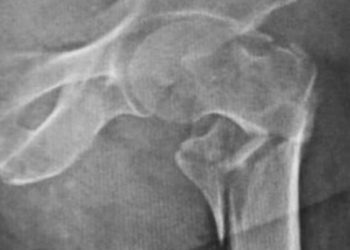A scoping review of primary care-based models for medication-assisted treatment of opioid use disorder
1. The four key elements of medication-assisted treatment (MAT) models in the primary care setting include pharmacotherapy, education, incorporation of opioid use disorder (OUD) treatment along with other needed care, and psychosocial services.
2. MAT delivery in the primary care setting can expand beneficial OUD treatment access, but there are many important areas where data is lacking and future research should be completed.
Evidence Rating Level: 2 (Good)
Study Rundown: OUD is a serious problem in the United States, with an estimated 1.9 million Americans of at least 12 years of age having OUDs related to prescriptions and approximately 600 000 users of heroin (2014 data). MAT for OUD helps reduce illegal use of opioids, prevents relapse, assists in health improvement, and decreases risk of OUD-related death. MAT decreases opioid use better than using only behavioral treatment. This scoping review discusses 12 representative primary care-based models for incorporating MAT of OUD. The four key elements of MAT models in this setting include pharmacotherapy, educational interventions for the provider and community, incorporation of OUD treatment along with other psychological and medical needs, and psychosocial services. If implemented, MAT models of care should be customized for the environment where it is used.
Strengths of this scoping review include the description of 12 representative MAT models and the development of a framework for future research. Some MAT models are unpublished, and comparisons of the outcomes of different models of MAT have not been done. Therefore, limitations of this scoping review include the lack of an exhaustive list of MAT models and lack of comparison data for outcomes of various MAT models. Major areas of ambiguity include the best method to measure MAT care quality, optimal psychosocial elements of MAT, tools to assess and enhance care individualization, expenses and cost-effectiveness, the best ways to incorporate care, methods to decrease diversion, and telemedicine approaches. The authors advised future research in these areas.
Click to read the study in Annals of Internal Medicine
Relevant Reading: Primary care for opioid use disorder
In-Depth [scoping review]: The authors interviewed 11 key informants who had experience integrating MAT for treating OUD in the setting of primary care. Using this information, the authors organized important elements of MAT models into a framework for future research and examination. The authors used databases to search for literature with descriptions of MAT models used in the primary care setting. They categorized 4 practice-based and 8 systems-based models. Practice-based models included office-based opioid treatment (OBOT), the Buprenorphine HIV Evaluation and Support (BHIVES) Collaborative model, the one-stop shop model, and a model of integrated prenatal care and MAT. Systems-based models included the Medicaid health home model, the hub-and-spoke model, Project Extension for Community Healthcare Outcomes (ECHO), collaborative opioid prescribing model, the Massachusetts nurse care manager model, emergency department initiation of OBOT, inpatient initiation of MAT, and the southern Oregon model (an informal model for delivering MAT in a rural primary care clinic network). Difficulties for putting MAT into practice include a deficiency of trained primary care providers, models of reimbursement that do not provide funding for psychosocial services and coordinating care, stigma associated with MAT, and lengthy travel for rural patients. Training and education, using people who are not physicians, creating reimbursement models that provide funding for MAT delivery, and tele-education are some ways to address these obstacles.
Image: CC/Wiki
©2016 2 Minute Medicine, Inc. All rights reserved. No works may be reproduced without expressed written consent from 2 Minute Medicine, Inc. Inquire about licensing here. No article should be construed as medical advice and is not intended as such by the authors or by 2 Minute Medicine, Inc.









